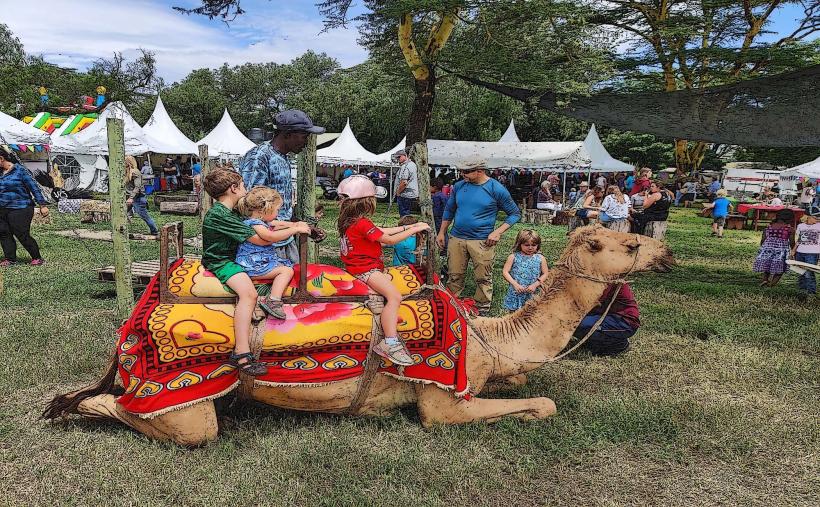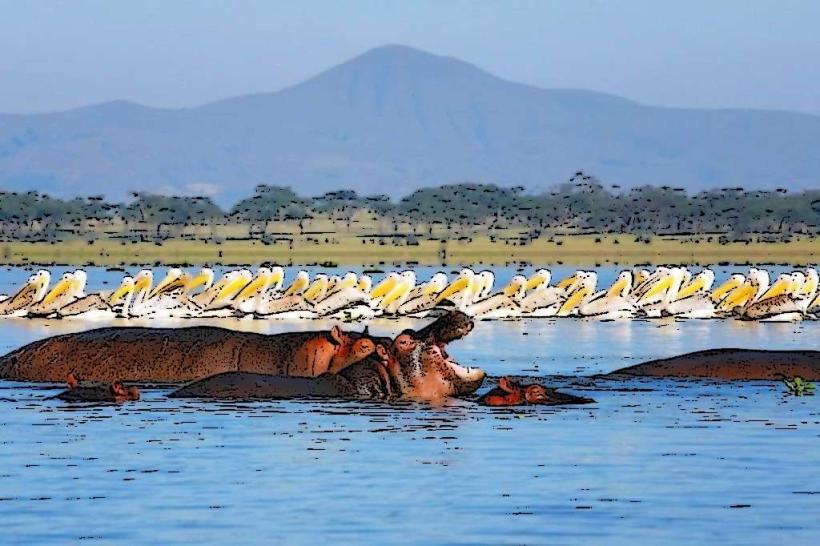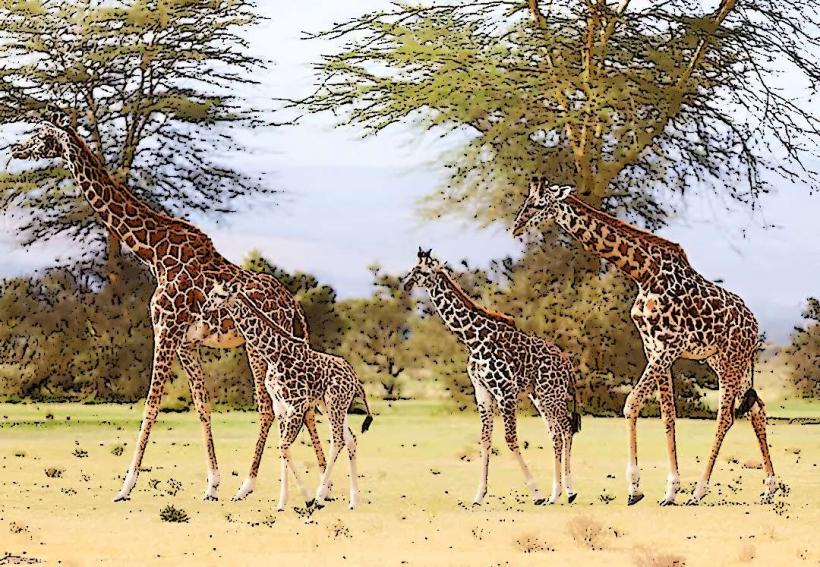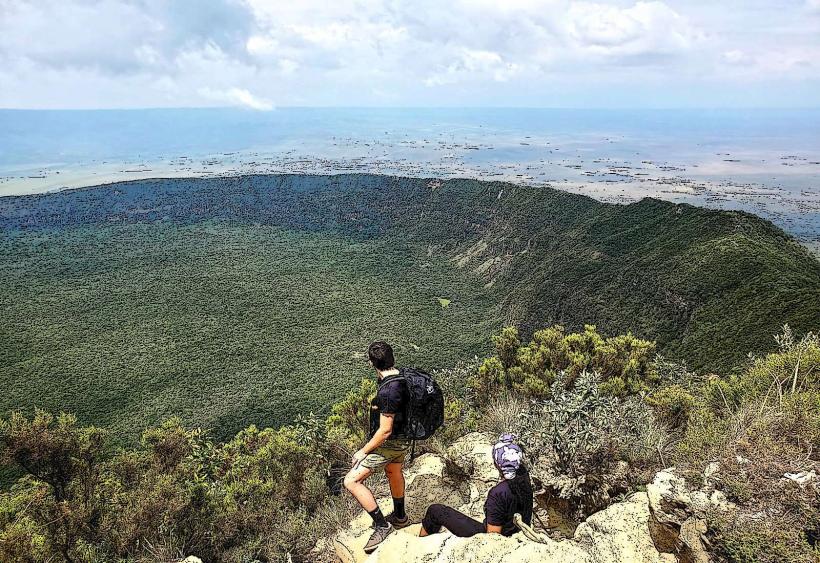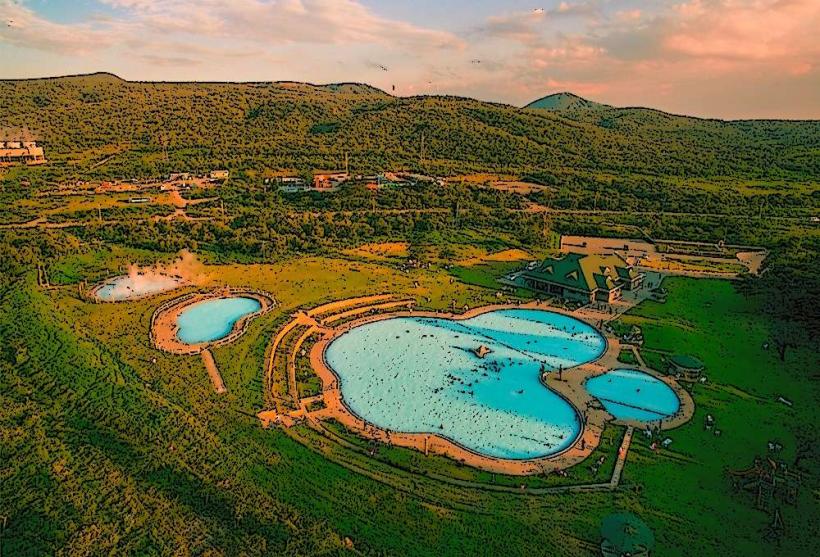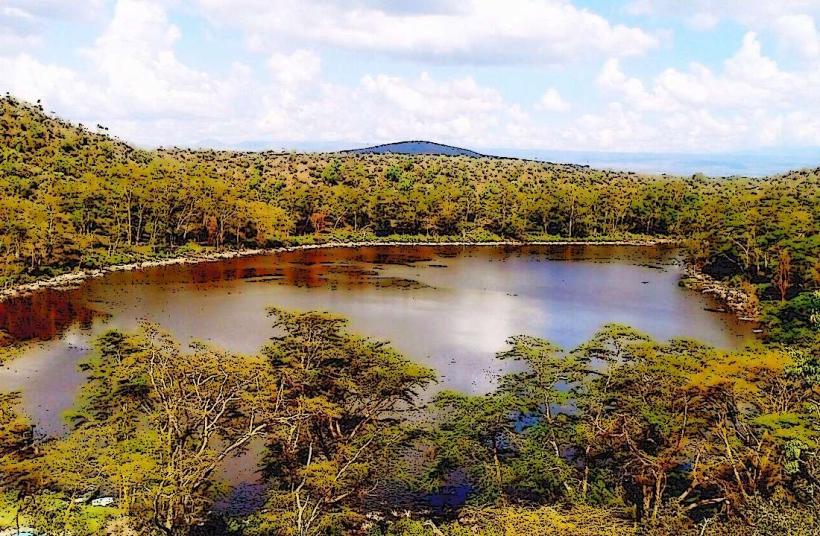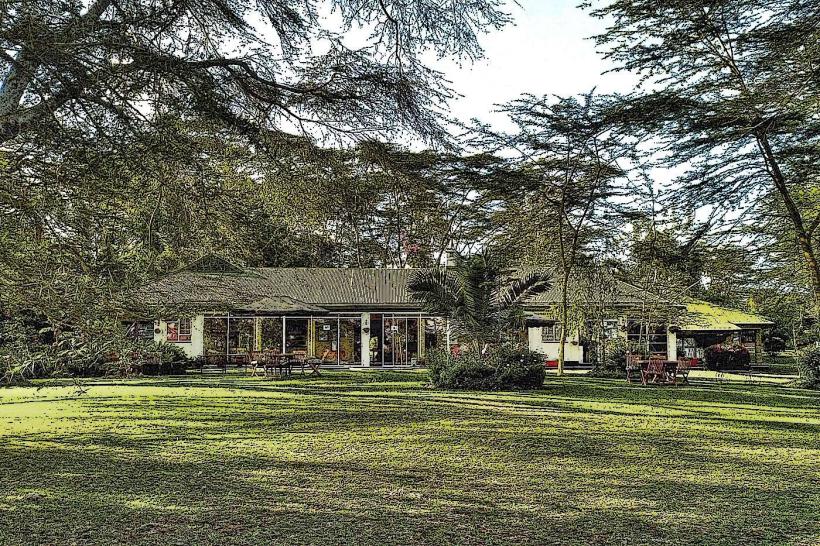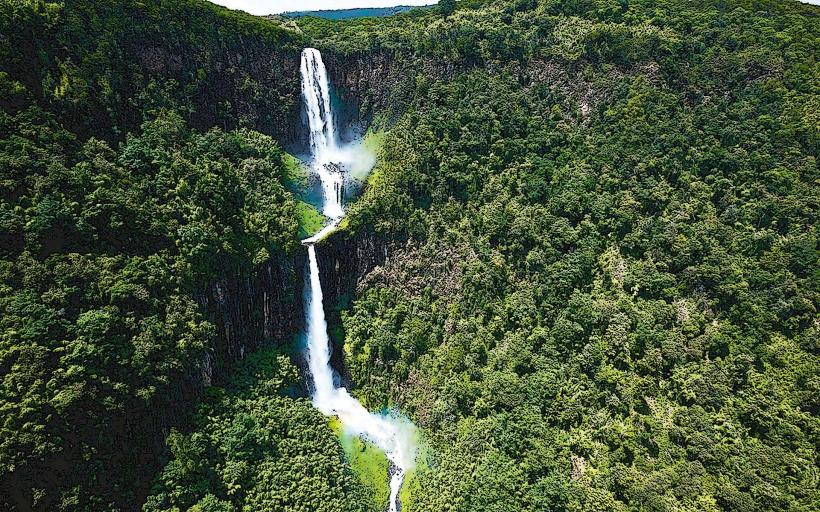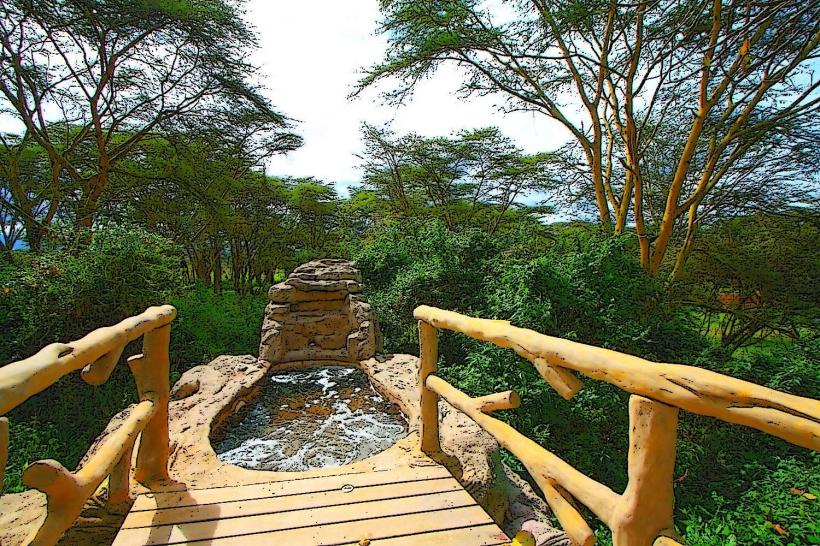Information
Landmark: Hell's Gate National ParkCity: Naivasha
Country: Kenya
Continent: Africa
Hell's Gate National Park, Naivasha, Kenya, Africa
Hell’s Gate National Park is a popular national park located in the Great Rift Valley of Kenya, near Lake Naivasha. It is renowned for its dramatic landscapes, geothermal activity, and the opportunity to enjoy a range of outdoor activities, including walking safaris, cycling, and hiking. Here’s a detailed overview of Hell’s Gate National Park:
Overview
Location: Hell’s Gate National Park is situated about 90 kilometers (56 miles) northwest of Nairobi and is easily accessible from Naivasha town. It is part of the Great Rift Valley and is nestled between Lake Naivasha and Mount Longonot.
Size: The park covers an area of about 68 square kilometers (26 square miles).
Established: The park was established as a national park in 1984.
Name Origin
The park gets its name from the hot, sulfurous geysers and steam vents that emanate from the volcanic rock formations in the area, giving it an "infernal" appearance. The name "Hell’s Gate" was inspired by the area's geothermal activity, with locals once describing it as a "gateway to hell."
Key Attractions
Geothermal Activity and Scenic Landscapes:
Hell’s Gate is known for its striking geothermal features, including hot springs, geysers, and fumaroles (vents that release steam and gases from the earth). The park is home to several geothermal power stations, which harness this energy to generate electricity for the surrounding regions.
The park’s rugged landscapes are characterized by towering cliffs, deep gorges, and rock towers, making it one of Kenya’s most scenic parks.
Ol Njorowa Gorge: One of the most famous features of the park, this gorge is a beautiful, narrow passage carved by a river over millennia. It is a popular spot for visitors to walk through and explore the stunning geological formations.
Wildlife Viewing:
The park is home to a variety of wildlife, including herbivores such as giraffes, zebras, wildebeests, antelopes, and buffaloes. It is also known for its population of warthogs and baboons.
Predators: While Hell's Gate is primarily known for its herbivorous wildlife, it is also home to some predators, including lions, leopards, and cheetahs, although sightings of these animals are less frequent.
The park is ideal for walking safaris, as it is one of the few parks in Kenya where visitors can explore on foot, which allows for a more immersive wildlife experience.
Birdwatching:
Hell’s Gate National Park is home to over 100 bird species, making it a great spot for birdwatching. Some notable species include the African Fish Eagle, vultures, ostriches, and several types of raptors.
The park’s mix of wetlands, forests, and grasslands provides a diverse habitat for both resident and migratory birds.
Cultural Sites:
The park also contains ancient Maasai rock paintings that can be found on cliffs in certain parts of the park. These paintings are a testament to the long history of the Maasai people in the region and provide insight into their ancient traditions and beliefs.
Maasai Culture: Hell’s Gate is located within Maasai land, and visitors often have the opportunity to learn about Maasai traditions and customs from local guides and community members.
Activities in Hell’s Gate
Walking Safaris:
Hell’s Gate is one of the few national parks in Kenya where walking safaris are allowed. Walking through the park allows you to experience its beauty up close and provides the chance to spot animals in a more personal way.
There are various walking trails, including hikes to the Ol Njorowa Gorge, which are popular among visitors. Guided walks are available for those who want to learn more about the park’s wildlife and geology.
Cycling:
Cycling is one of the most unique activities at Hell’s Gate National Park. Visitors can rent bicycles and explore the park’s vast landscapes and wildlife on two wheels. Cycling is a great way to cover more ground while enjoying the scenery, and it’s particularly popular among tourists who enjoy more active outdoor experiences.
There are designated cycling routes within the park, and you can bike around the volcanic cliffs, through the gorges, and along the plains where wildlife roam.
Hiking:
The park offers several hiking trails for various skill levels, from easier walks around the lake to more challenging hikes up the cliffs and through the gorges.
Mount Ololokwe (the "Gate" Mountains): Hiking up these steep cliffs offers panoramic views of the Rift Valley and the surrounding landscape.
Rock Climbing:
The park’s rock formations provide excellent opportunities for rock climbing, particularly in areas like Fischer’s Tower and the Central Tower, both of which are popular spots for climbers. The cliffs are made of soft volcanic rock, offering a unique climbing experience.
Geothermal Power Tour:
Hell’s Gate is home to the Olkaria Geothermal Power Station, which harnesses the area’s geothermal energy. Guided tours can take you through the power station and explain how geothermal energy is generated and used to supply power to the region.
Flora
Hell’s Gate is home to a diverse range of vegetation types, including savanna grasslands, acacia woodlands, and lush vegetation around the geothermal hot springs and the wetlands.
The park is also home to various species of indigenous trees, shrubs, and plants that thrive in the volcanic soil.
Conservation and Environmental Challenges
Hell’s Gate faces some environmental challenges, such as:
Human Impact: The nearby geothermal power plants, although they provide a significant source of energy, have caused some changes in the park's natural environment. There is also pressure from agriculture and human settlements around the park.
Invasive Species: Like many natural areas, Hell’s Gate faces threats from invasive plant species that could alter the balance of the ecosystem.
However, efforts are being made to preserve the park's natural beauty, including sustainable tourism practices and conservation programs.
Visiting Hell’s Gate National Park
Entry Fees: The entry fees vary for residents and non-residents. Fees are used to maintain the park and fund conservation efforts.
Opening Hours: Hell’s Gate is open every day from 6:00 AM to 6:00 PM.
Access: The park is accessible by road from Naivasha, which is about a 30-minute drive. Public transport and taxis are also available, though it’s often best to travel by private vehicle for convenience.
Accommodation Near Hell's Gate
Budget and Mid-Range Lodging: There are several accommodation options around the park, including campsites, lodges, and budget hotels.
Olkaria Lodge: A well-known eco-lodge located near the park, offering a comfortable stay with great views.
Lake Naivasha Sopa Resort: A luxurious resort located near the lake with easy access to Hell’s Gate.
Best Time to Visit
Dry Season (June to October): The dry season is the best time to visit Hell’s Gate for outdoor activities like hiking, cycling, and walking safaris, as the weather is generally more pleasant.
Wet Season (March to May): Although the park can be visited year-round, the wet season brings rain, which can make certain trails slippery and less accessible. However, this is also the time when the landscape is lush and green, offering a different but equally scenic experience.
Conclusion
Hell’s Gate National Park offers a unique experience in Kenya, combining breathtaking natural landscapes with diverse wildlife and opportunities for adventure. Whether you're hiking, cycling, or just enjoying the geothermal features, Hell’s Gate provides an exciting and scenic getaway for nature lovers, adventure enthusiasts, and those seeking a more intimate connection with the Kenyan wilderness.

